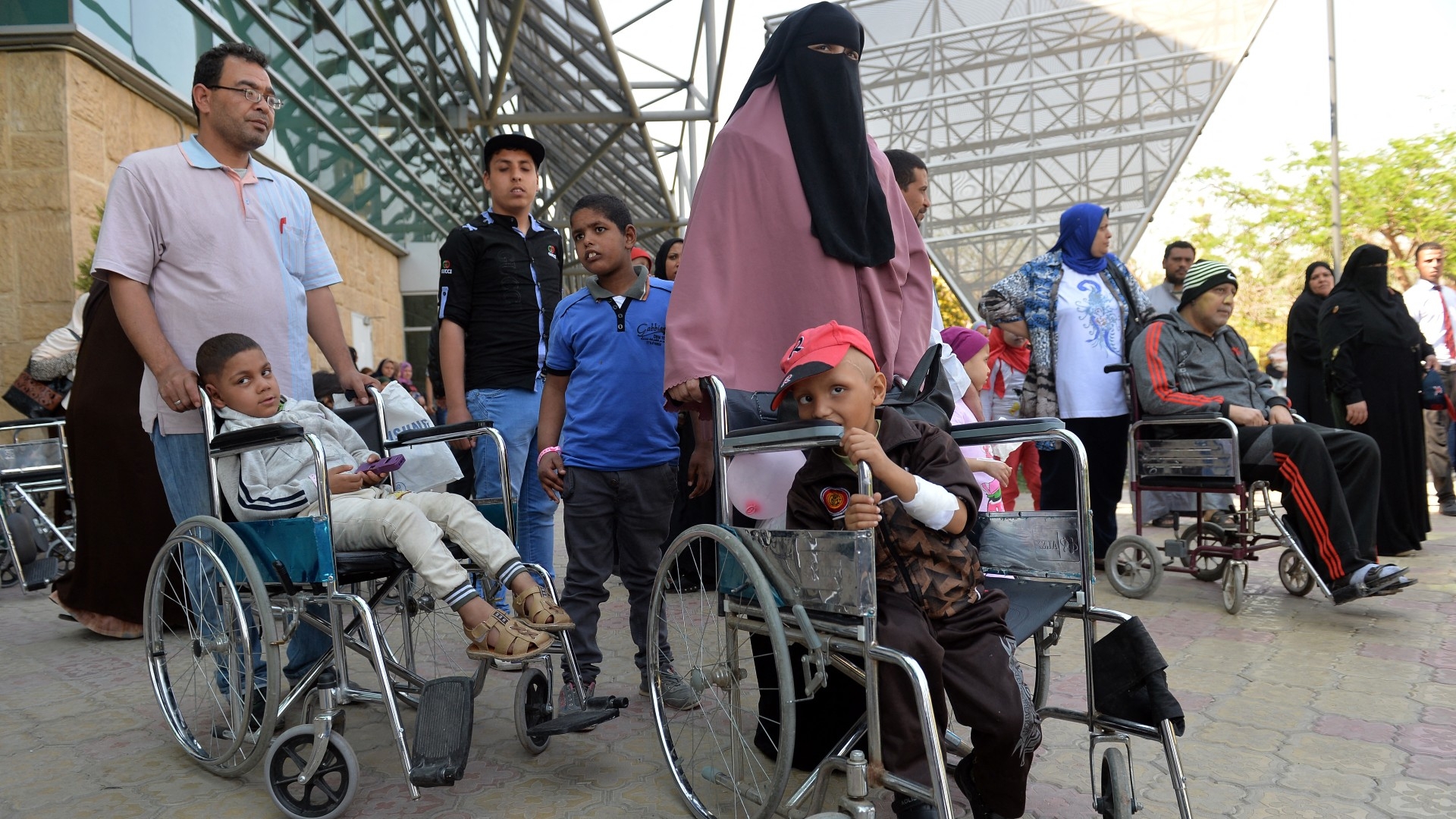Drop in donations pushes Egypt's main children's cancer hospital to brink of closure

Egypt's main children's cancer hospital is on the verge of closure after a noticeable drop in donations.
Donations to the Children's Cancer Hospital, widely known as Hospital 57357, have declined by 80-88 percent in the past six months alone, according to the hospital's administration.
"This also makes us incapable of maintaining our services for long," Mustafa Abdel Nasser, the media spokesperson for the hospital, told Middle East Eye.
Public donations constituted the main revenue of Hospital 57357 since it opened in southern Cairo in 2007.
The hospital treats thousands of children free of charge and has been considered an exemplary model of publicly funded health institutions over the years.
New MEE newsletter: Jerusalem Dispatch
Sign up to get the latest insights and analysis on Israel-Palestine, alongside Turkey Unpacked and other MEE newsletters
With 345 inpatient beds and 2,548 workers - including 397 full and part-time physicians and 726 nurses - it is the largest paediatric oncology hospital in the world in terms of capacity, according to its website.
Around 18,000 children are currently receiving free treatment at the hospital and there are 17,500 patients on its waiting list.
Nothing to spare
The hospital's administration says the rising exchange rate of the US dollar against the Egyptian pound has increased costs dramatically.
The rising prices, compared to the money the hospital has, are making it impossible to cover basic costs, including for medicines and equipment, says the administration.
"The drop in donations makes things even worse," Ebada Sarhan, a member of the hospital's board of trustees, told MEE.
He and other hospital officials expect 57357 to stop functioning in eight months' time if the rate of donations continues as is and no intervention is made to offer it a lifeline.
The driving force behind the drop in donations is the rising cost of living, including food, and the failure of a large number of Egyptians to spare funds for charity.
Egypt's economic problems have become more acute in the past two years, initially because of Covid-19 and then because of the war in Ukraine.
The war-induced rise in commodity prices is ricocheting off the international market and hitting the wallets of tens of millions of Egyptians, translating into higher prices in the local market.
Egypt's tourism and export sectors also received devastating blows from the war, depriving the national treasury of billions of dollars in revenue.
The Egyptian Central Bank has had to devalue the Egyptian pound twice since March this year.
Like everywhere else in the world, cancer medications and treatment are costly, but in Egypt's context, the lack of free treatment is especially disastrous, with nearly a third of the population living under the poverty line.
Most of Egypt's state-run hospitals offer free treatment for a wide range of diseases.
The hospital's only subsidiary in Egypt, namely Hospital 57357 in Tanta in the Nile Delta, stopped functioning due to financial constraints as well.
Abdel Nasser said Hospital 57357 in Cairo, which used to follow up with patients after their recovery until the age of 25, has decided to reduce follow-ups to the age of 22 to reduce costs.
"It is highly likely also that we will not offer treatment to the patients on our waiting lists if this financial crisis persists," he said.
Pleas for help
Egyptian social media is awash with comments, calling for the hospital to be rescued.
Some civil society organisations have also launched donation campaigns amid widespread sympathy for the hospital's plight, including from players in the Egyptian Premier League.
This has alerted the Egyptian parliament to the issue, prompting some MPs to call on Egyptian authorities to take action to rescue the hospital.
"There is an urgent need for the government to intervene to help this hospital," MP Mahmud Qassem told MEE.
"One way this can be done is for the government to at least exempt the hospital from all bills, including those of electricity and water."
Middle East Eye delivers independent and unrivalled coverage and analysis of the Middle East, North Africa and beyond. To learn more about republishing this content and the associated fees, please fill out this form. More about MEE can be found here.

